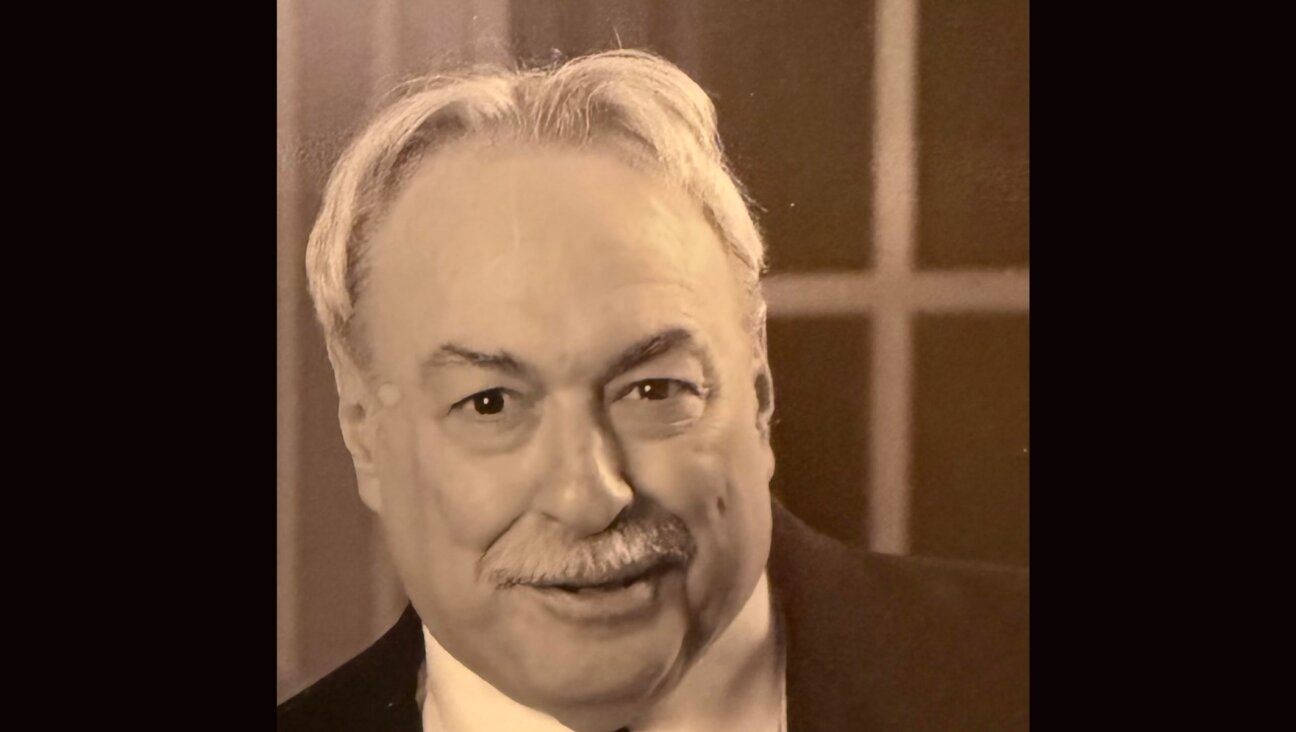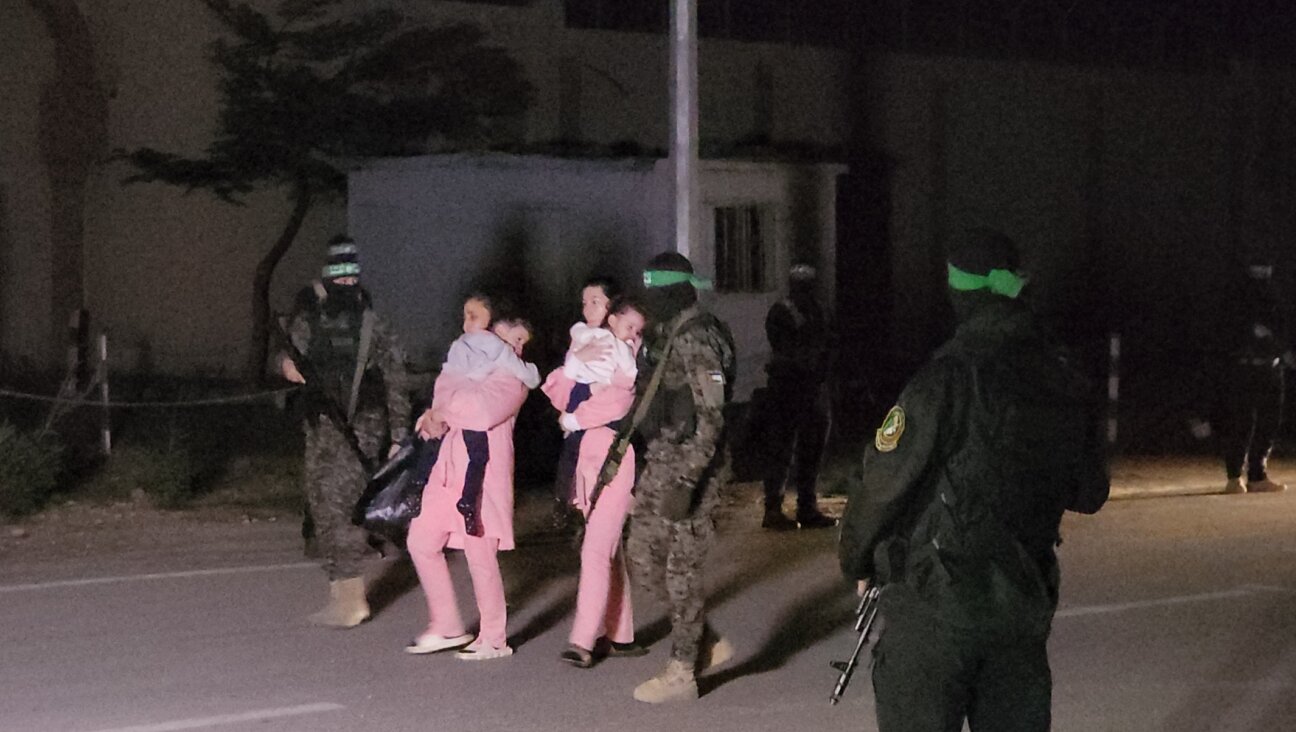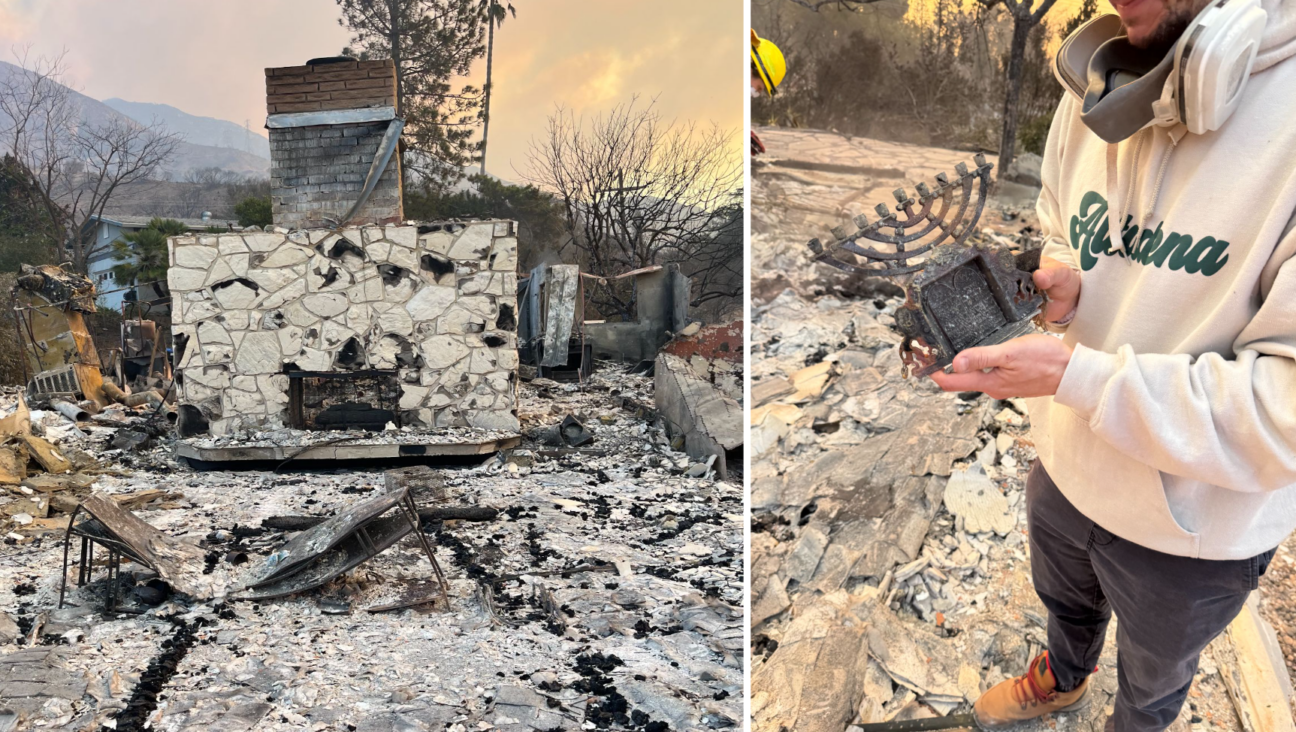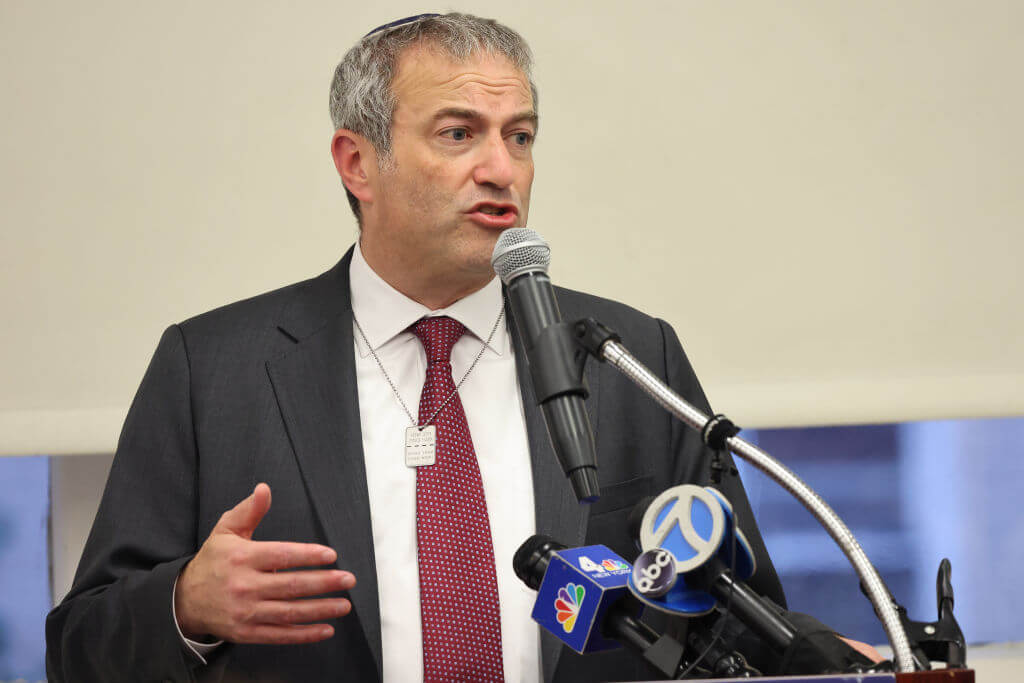Torah and Toddlers: Parenting’s Jewish Lessons

Rabbi Ilana Grinblat has written a new book, “Blessings and Baby Steps,” (Behrman House, 2011) which synthesizes insights into Torah and lessons learned from giving birth to, and parenting, her two young children.
Grinblat teaches Midrash at the American Jewish University’s Ziegler School of Rabbinic Studies in Los Angeles, where she received ordination in 2001. She previously worked as a pulpit rabbi in two L.A.-area synagogues and has written about parenting for The Forward, the Jewish Journal of Los Angeles and the Washington Jewish Week.
She and her husband have two children. Jeremy is 7 and Hannah is 4.
Debra Nussbaum Cohen: What, specifically, gave you the idea for “Blessings and Baby Steps?”
Rabbi Ilana Grinblat: I got the idea for writing the book when I was on an airplane returning from a trip to Israel when my son was a month shy of his first birthday. It was New Year’s Day (of 2004) and I was reflecting on the year that had passed and how challenging and incredible becoming a parent had been. I realized that many of the sermons I had written over that year were actually based on what I had learned by becoming a parent (though I had never said so in the sermons). At that moment, I realized I could rewrite the sermons and explain how they were inspired by the experiences of becoming a parent, and that could become the book. I outlined the book right there on the plane.
But the first inspiration for “Blessings and Baby Steps” came earlier. When I was in rabbinical school, one of my teachers, Rabbi Perry Netter, told us that when he saw the beauty of the Grand Canyon, a verse immediately came to mind: “How wondrous are your works, God, how deep your thoughts.” (Psalm 92:6) In the first months of my son’s life, as I held him, that verse kept popping into my mind. It became the central motif of the book, which is ultimately about discovering wonder in life.
How do you want parents to use your book? What do you hope it will accomplish?
I hope the book will help parents find meaning in the day-to-day moments of raising children. The stories from the Torah that I discuss helped me keep the struggles of parenting in perspective and let me appreciate the joys even more. I hope the stories will do the same for readers.
The book can also generate discussion between parents, in synagogues, community centers, and homes. “Blessings and Baby Steps” can be used as part of book groups, parenting classes or informal discussion groups so that expectant and new parents can find support.
Is there any aspect of parenting for which you have not found something related in Torah?
There’s a teaching in Pirkei Avot (Ethics of the Fathers) which says about the Torah, “Turn it over and over, for everything is in it.” This saying has proven true for me. For each aspect of parenting there has been a story from the Torah, Talmud or Midrash which spoke to that experience.
What is the greatest challenge for pulpit rabbis who are also mothers of young children?
One of the greatest challenges is that both the pulpit rabbinate and motherhood have demands at particular moments that can’t be predicted or scheduled. As a pulpit rabbi, you have emergencies, hospital visits, funerals and other commitments that come up without warning. The needs of young children are also unpredictable and hard to schedule.
Have you ever felt torn between being present for one of your children and being present for a congregant?
When I was in the pulpit and my kids were small, I did feel torn periodically. For example, I would schedule my meetings so I could breastfeed the baby in between. But sometimes, the baby would want to nurse during the meeting. Congregants were understanding if we needed to take a break so I could nurse and then resume the meeting. If it was a female congregant then sometimes I would nurse during the meeting. Thankfully, I was able to both be there for my congregants and my children.
How is being a mother shaping your career as a rabbi?
In many ways. For my first three years of motherhood, I continued as a full-time congregational rabbi. When my second child was born, I decided to leave the pulpit so I could spend more time with my children. I now have found a new way to be a rabbi, through writing and teaching part-time. Through writing I can explore the connections between parenthood and Jewish texts.
How does being a mother enrich your rabbinate, and vice versa?
Mothering has made many of the texts of our tradition enter my heart in a new way. It has given me a more personal relationship with Torah. Parenthood has also deepened my relationship with God. As a parent, I experience the wonder within ordinary moments and connect with life’s mysteries as never before. Then I can share those experiences and insights as a rabbi.
My rabbinic training gave me a body of texts, stories and traditions through which to view my experiences. When I watch my children, a particular verse or story will often come to mind and deepen my experience of the moment. For example, when my kids were fighting over the same toy, a rabbinic text came to mind about the difficulty of sharing. That helped me understand my children’s struggles as part of a bigger challenge that all people face. These texts help me keep the struggles of parenting in perspective and heighten the joy and wonder along the way.
To me, working as a congregational rabbi is about finding the connections between the story of each person’s life in the community and the Torah. When doing a bar mitzvah, for example, I talk about the Torah portion for that week as it connects to the young man’s life. As I learned to find these links for others, I then began discovering those connections in my own family’s life, between what was happening on a daily basis and the stories of biblical and rabbinic texts. Becoming a rabbi helped me discover the sacredness in everyday life, which in turn makes me appreciate each step of my children’s growth.
A message from our Publisher & CEO Rachel Fishman Feddersen

I hope you appreciated this article. Before you go, I’d like to ask you to please support the Forward’s award-winning, nonprofit journalism so that we can be prepared for whatever news 2025 brings.
At a time when other newsrooms are closing or cutting back, the Forward has removed its paywall and invested additional resources to report on the ground from Israel and around the U.S. on the impact of the war, rising antisemitism and polarized discourse.
Readers like you make it all possible. Support our work by becoming a Forward Member and connect with our journalism and your community.
— Rachel Fishman Feddersen, Publisher and CEO
























